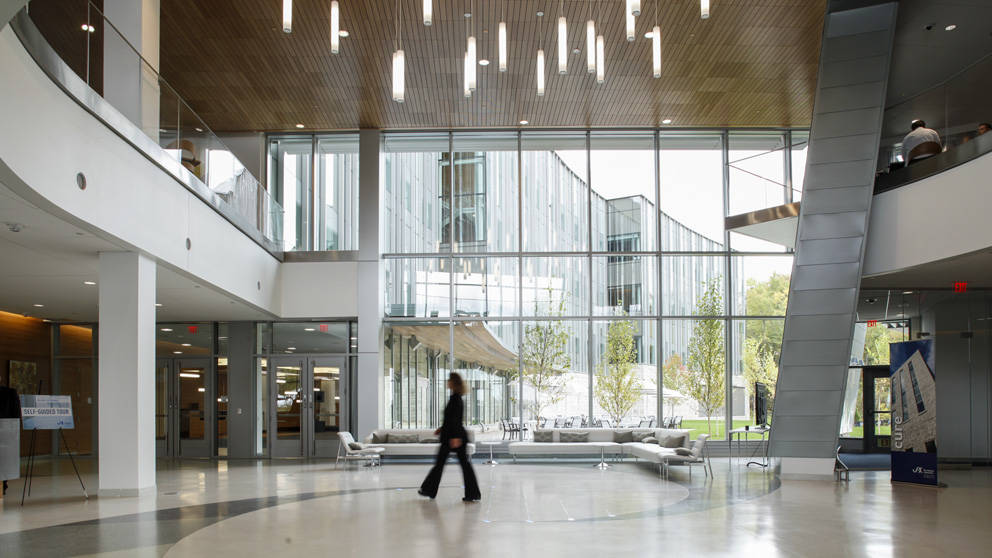
Five-year, $25M grant distributed among nine U.S. research institutes
Oregon Health & Science University, Northwestern University, University of Washington, Johns Hopkins University School of Medicine, and Sage Bionetworks, together with The Scripps Research Institute, Washington University in St. Louis, the University of Iowa and The Jackson Laboratory (JAX) for Genomic Medicine have been awarded a five-year $25M cooperative agreement from the National Center for Advancing Translational Science (NCATS) to create a new CTSA Program National Center for Data to Health (CD2H). This award will coalesce and coordinate informatics activities across the Clinical and Translational Science Award (CTSA) Program, a network of more than 50 medical research institutions, to provide collaborative clinical and translational research infrastructure.
The new CTSA Program National Center for Data to Health will be led by Dr. Melissa Haendel (OHSU), Dr. Kristi Holmes (Northwestern University), Dr. Sean Mooney (University of Washington), Dr. Christopher Chute (Johns Hopkins University School of Medicine), and John Wilbanks (Sage Bionetworks). “The goal is to unlock the amazing wealth of technologies and innovation located within each individual CTSA and to create cohesive communities of practice founded on the fundamental premise that team science, data sharing, and collaborative innovation can advance patient care” described Haendel, the center director at Oregon Health & Sciences University who also co-directs the Biomedical Data Translator program supported by NCATS (Grant OT3TR002019).
JAX Professor and computational biologist Peter Robinson, M.D., M.Sc., will be the consortium principal investigator at JAX. He will collaborate and provide expertise on phenotype modeling with the Human Phenotype Ontology (HPO), contribute to algorithms for translational bioinformatics in this project, and provide clinical knowledge especially in the fields of pediatrics and medical genetics for the Rare Disease demonstrator. Robinson leads the HPO consortium and will integrate HPO-based deep phenotyping into clinical and translational science for the CTSA community.
The CD2H will be tasked with several priorities to support a vibrant and evolving informatics ecosystem, including: support and enhancement of a collaborative informatics community; development of Good Data Practice (GDP); promotion of software standards for interoperability; growth of collaborative innovation across informatics tools, methods, and processes; advancement of cutting edge biomedical research informatics; data science education for CTSA Program researchers; and novel methods and tools for the evaluation of the impact of these activities to enhance health care through data and informatics.
Professor Christopher Chute, Chief Research Information Officer at Johns Hopkins Medicine and Deputy Director of the Johns Hopkins Institute for Clinical and Translational Research described the important role that collaborative informatics plays in health. “All CTSA hubs have shared an aspiration for federated analyses of clinical data across the network, married with public repositories of basic science data, to achieve unprecedented levels of biomedical knowledge discovery and improved practice. CD2H will catalyze this process, and coordinate the myriad of social, legal, and technical requirements to make this practical.” Dr. Justin Guinney, Director of Computational Oncology at Sage Bionetworks and co-director of the DREAM Challenges, shared, “The CTSA network is a vibrant community which can greatly benefit from a set of integrated platforms and best-practices across institutions to facilitate data sharing and method benchmarking. Our vision is that a data-driven and model-based ecosystem will have a lasting impact on patient outcomes.”
The newly created center will focus on creating and harnessing an ecosystem for translational scientists to discover and share their software, data, and other research resources within the CTSA Program network. The CD2H also creates a social coding environment for translational science institutions, leveraging the community-driven DREAM challenges as a mechanism to stimulate innovation. Collaborative innovation also serves as a strong foundation to support mechanisms to facilitate training, engagement, scholarly dissemination, and impact across the CTSA Program hubs and beyond.
University of Washington lead, Prof. Sean Mooney, Chief Research Information Officer of UW Medicine, described the center as an opportunity to show the power informatics can have on advancing healthcare using data and technology. Dr. Kristi Holmes, Director of Evaluation at the Northwestern University Clinical and Translational Sciences Institute and Director of the Galter Health Sciences Library & Learning Center at Feinberg School of Medicine, expressed her enthusiasm for the project, “As scientific research is transformed by big data, high-performance computing, and real-time publishing, the structure and composition of scientific teamwork is also changing. Here we aim to grow the informatics-based architecture needed to support interdisciplinary teams so that diverse contributions are valued and recognized -- enhancing knowledge transfer, discovery, and impact on health.”
The new CTSA Program National Center for Data to Health is supported by the National Center for Advancing Translational Sciences (NCATS) at the National Institutes of Health (Grant U24TR002306).